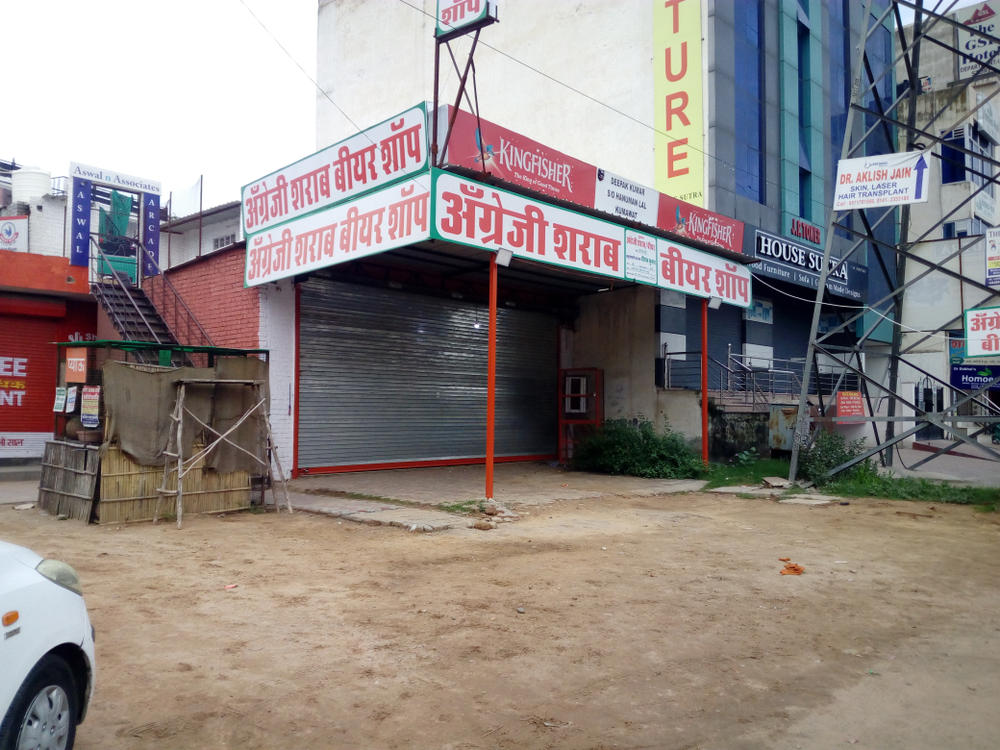Sir — It was both amusing and worrying to witness the reactions of Indian citizens, especially on the internet, to the news that liquor shops would reopen from today, albeit with certain restrictions. While the jubilation is interesting to witness, there are fears that crowds will gather in large numbers and behave irresponsibly outside liquor stores, even though social distancing is of utmost importance. While the police will be required to maintain law and order, it is important for the government to think of ways to let citizens legally purchase liquor without endangering themselves and others.
Debjani Sen
Calcutta
Legend lost
Sir — The news of the death of the legendary footballer, Chuni Goswami, was deeply saddening (“A rare sporting talent”, May 1). Goswami was one of India’s greatest athletes and was a symbol of a time when sports in India had not yet become so greatly commercialized. Along with P.K. Banerjee, Tulsidas Balaram, Sailen Manna and others, Goswami had taken Indian football to heights that it has arguably not achieved ever since. He enchanted fans as much by his sheer sporting talent and skill as he did with his affability, manners and winsome smile.
There is a particular incident related to Goswami that will always remain etched in my memory. During my high school years in Calcutta in the mid-1960s, I once had the opportunity to see him at close range while he practised on the Mohun Bagan club grounds. In the course of the practice session, one of the Mohun Bagan officials challenged him to toss the ball one hundred times in the air with one foot without letting it fall to the ground. He offered Goswami Rs 300 if he could accomplish this feat. Goswami calmly accepted the challenge and, to the official’s surprise, effortlessly manoeuvred the ball to bounce back and forth off his right foot in the air more than a hundred times. The club official, clearly embarrassed, took Rs 300 out of his pocket and handed it to Goswami. I expected the latter to be delighted at winning the challenge. Instead, he turned serious. He looked around and spotted a groundskeeper close by. He then handed the money to the groundskeeper, saying that he could use it to buy groceries for his family.
While Goswami was a pan-Indian figure, he will always remain special and integral to the heart and soul of Bengal as one of its greatest icons.
Tarasankar Chaudhuri
New Jersey, US
Sir — With Chuni Goswami’s passing, Indian football has lost its first poster boy. With his good looks and charm, Goswami was a crowd-puller in Mumbai, with Dilip Kumar, Hemant Kumar, Sachin Dev Burman and Manna Dey as his die-hard fans during the Rovers Cup. He joined Mohun Bagan as a gangly 16-year-old and remained a Mariner forever. Goswami was everything that a sportsperson would aspire to be. He was the Indian equivalent of England’s Denis Compton who played both football and first-class cricket. In 1966, as part of a combined East and Central zone team, Goswami played against the mighty West Indies led by Garry Sobers. In that match, he took eight wickets and was instrumental in the Indian side winning by an innings and 44 runs. In that same match, Goswami back-pedalled 25 yards to take a catch that earned him plaudits from Sobers. Little did Sobers know that the fielder who took the catch was an international footballer for whom back-pedalling 25 yards was no big deal.
Goswami was tall and lithe, the last gold-medal-winning Indian skipper-footballer, an Olympian and a distinguished first-class cricket captain. He found mention in Sobers’s memoir. Chunida, as he was fondly called, was the stuff of sporting legend. He became the sheriff of Calcutta and wrote insightful newspaper columns on Indian football.
Shovanlal Chakraborty
Calcutta
Sir — The death of Chuni Goswami, the captain of the Indian football team that won gold at the 1962 Asian Games, comes 41 days after the passing of his former teammate, P.K. Banerjee. Goswami led Bengal in the Santosh Trophy and Ranji Trophy, playing both football and cricket like Denis Compton. The versatile Goswami was unique in other ways as well. He played for Mohun Bagan from 1954 to 1968, but he was actually spotted by B.D. Chatterjee as an eight-year-old school boy; Chatterjee got him into Mohun Bagan’s junior team in 1946. He held the distinction of playing for Bagan throughout his career in spite of offers from Bagan’s arch-rival, East Bengal, besides reported offers from the famous English football club, Tottenham Hotspur.
As a cricketer, Goswami fearlessly took on Roy Gilchrist in a match that I witnessed. But some of the best cricket he played was in 1966, when he and Subrata Guha plotted the historic innings defeat of Garry Sobers’ West Indies. He will be greatly missed; one prays for his family at this time.
Bidyut Kumar Chatterjee
Faridabad










